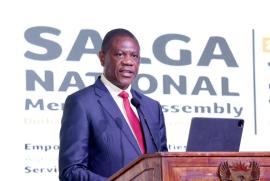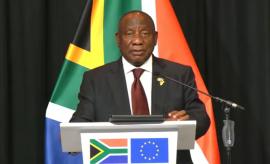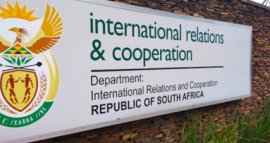Just as birthdays are traditionally marked with celebration and some reflection, South Africa’s Constitutional Court recently blew out the candles in celebration of its 30th birthday, having continued to make a positive impact on society.
Few of us can envision a democratic South Africa minus the apex court that was birthed by our country’s world-famous Constitution.
In the most basic form of our understanding of the court, most of us have come to associate the court with the human rights contained in the Bill of Rights of the Constitution. That loose definition is not too far off the bat. As the highest court in the land on constitutional matters, it deals exclusively with matters that raise questions about the application or interpretation of the Constitution.
Given our painful history where torture and the real threat of death were the order of the day for the majority, South Africans care a lot about their human rights and that of others.
The court is an integral part of South African life, traversing even to the core of matters of life and death. In its S v Makwanyane (1995) landmark case on the constitutionality of the death penalty, which was a feature of the apartheid regime, the court ruled that the death penalty was unconstitutional as it violated the right to life as enshrined in Section 11 of the Bill of Rights.
That seminal ruling was proof that the law which was previously used to oppress non-whites in the apartheid era, could and did work in favour of South Africa’s people in all their diversity.
It was a needed and powerful ruling that spoke to the sacredness of life.
While that ruling of the court was made many years ago, its impact and effectiveness has continued to echo through the various stages democratic South Africa has gone through. Even when citizens and political formations, among others, called for a referendum to bring back the death penalty, government though the Ministry of Justice and Correctional Services responded by stating that the Constitution strives “to eradicate the injustices of the past, to protect us from our own whims and to advance the rule of law and to guarantee equality before the law.”
Section 74 of the Constitution states that the founding provisions in section 1 of the Constitution may only be amended by a bill passed by the National Assembly with a supporting vote of at least 75% of its members and a supporting vote of at least 6 provinces in the National Council of Provinces. Government said that any decision of the return or otherwise of the death penalty could not be legally done via a referendum.
And while one may say that the public outcry expressed by society back in 2019 over not only the brutal murder of student Uyinene Mrwetyana, but the overall levels of violent crimes committed against women and children necessitated the referendum, the supreme nature of the Constitution as the law of the republic has remained.
This is seen in how government responded to the matter while also highlighting that conduct that is inconsistent with the Constitution is invalid and that obligations imposed by it must be fulfilled.
This was also evidenced by the August v Electoral Commission (1999) case which sought to confirm the right of prisoners to vote and subsequently, since 1999 the Electoral Commission and the Department of Correctional Services has worked to provide voter registration and voting opportunities for inmates in line with the Constitutional right extended to prisoners to vote.
These judgements and others that followed, including the Government of the RSA v Grootboom (2000) case on the right to housing, which President Cyril Ramaphosa referred to at a ceremony celebrating the 30th anniversary of the court, show that the work of the court does not favour one particular sect of society, but champions the validity and integrity of the Constitution instead.
These judgements have not only educated the public on the Constitution but have also strengthened the country’s law-making capabilities while also strengthening South Africa’s democracy.
As we reflect on the body of work that the Concourt has produced over the years, what remains is that while the faces of government administrations have changed, the court and indeed other courts around the country have and continue to maintain their sacrosanct independence.
And while the court has had to force the hand of government to implement rights contained in the Bill of Rights such as the right to housing in the Grootboom matter in which the applicant Irene Grootboom died without a decent house is something that government must still work on.
In his commentary on the matter, President Ramaphosa said that deepening respect for constitutionalism across all sectors must start with the state and that Grootboom’s death without her dream having been realised, “will forever remain a blight on our democracy.”
And while the Constitution is the supreme law of the land, with the Constitutional Court as the highest court in the land on constitutional matters, our democracy makes provision for the amending of the Constitution where necessary.
Recently, Parliament’s Joint Constitutional Review Committee concluded deliberations on the feasibility of amending the Constitution, following up on legacy submissions inherited from the previous Parliament.
In the sixth Parliament, the submissions were subjected to public hearings with the committee having considered 10 legal opinions.
These opinions provided by the Parliamentary Legal Services, informed the committee’s assessment of various proposals for constitutional amendment.
The actual amendment to the Constitution can only be considered through a resolution passed by both Houses of Parliament.
The court is not merely a building, but a breathing, living element of a present and future South Africa, warts and all. May it continue to live long into the future. –SAnews.gov.za
Neo Semono is the Features Editor at www.SAnews.gov.za , in the Government Communication and Information System (GCIS)














